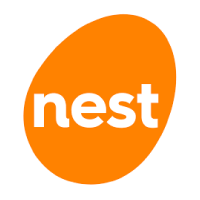What does 21st Century pension governance look like?

Last year, The Pensions Regulator (TPR) launched a campaign to strengthen pension scheme governance, outlining good governance standards and potential implications for pension schemes that fail to conform to the expected requirements. The campaign follows the publication of a discussion paper by TPR in 2016, which opened the dialogue on improving trustee competence, and governance and administration of pension schemes.
So, in an environment of frequent regulatory change and increasing pension complexities, what does 21st Century governance involve, and how can “good governance” be achieved?
Defining and identifying ‘good governance’
When exercising good governance, pension trustees operate a scheme in line with their intended objectives and in accordance with member values. In order to generate good outcomes for retirement, good governance is embodied by good decisions, efficient processes, and talented people, all driving the scheme in one direction based on a well-defined and successfully implemented strategy.
When choosing a master trust, one way in which an organisation can identify good governance is through the scheme having achieved master trust assurance – a demonstration that a scheme has been subject to an independent review of the description, design and effective operation of its governance and administration practices against a defined set of control objectives. A total of 23 schemes currently hold master trust assurance.
Another indication of good governance is the chair’s statement, an annual report from the chair of the scheme’s trustee board, which presents how a scheme has complied with specific pension governance standards. A legal requirement, failure to produce the statement results in fines for the scheme.
Employer involvement
Employers should look closely at their chosen schemes to ensure that the trustees are fulfilling their commitments and following good governance practices. Crucial to assessing best practices and identifying issues of concern is understanding member aspirations. Once key member concerns are identified, schemes can be managed accordingly to drive the desired outcomes.
Engagement is another important factor. An element of trust must be created between scheme trustees and members, with communication issued simply and clearly.
Trusting trustees
Ensuring that trustees act in the interest of members and the scheme’s objectives is paramount to achieving good governance. Training and development of trustees is key here, as trustees should continually learn and adopt new skills, bolstering their knowledge and increasing their ability to be an effective board member and manage a pension scheme efficiently. Diversity can improve the effectiveness of a board, potentially offering not only a range of skills, but also differences in background and experience to help ensure decisions are well made.
Governance is a continual feature of pension management. Schemes should review processes and strategy on an ongoing basis, with frequent reviews focused on a range of issues, including the effectiveness of the board, trustee knowledge and quality of subcommittees.
The future of pension governance
Pension scheme managers and trustee boards face a multitude of challenges in today’s economic climate. Following several recent high-profile pension scandals, it is becoming increasingly important for employers, members and regulators to hold pension providers to account and challenge the quality of their schemes and governance. Moreover, it’s the responsibility of trustees to ensure that they follow good governance practices and deliver good outcomes for members.
With TPR stepping up its campaign to promote good pension governance, there’s little room for manoeuvre for schemes that do not adhere to expected standards, and it will become increasingly difficult for such schemes to operate in the coming months and years.
Employers and members need assurance that their pensions are being managed appropriately, and with tighter regulations in place, only those schemes that can demonstrate good governance practices will be trusted with individuals’ funds and futures.
This article was originally published in Financial Director in association with NEST, and is distributed here with their written permission.
This article was provided by NEST.
Supplied by REBA Associate Member, Nest
We are the provider of choice for companies who care about the future of their workforce.







